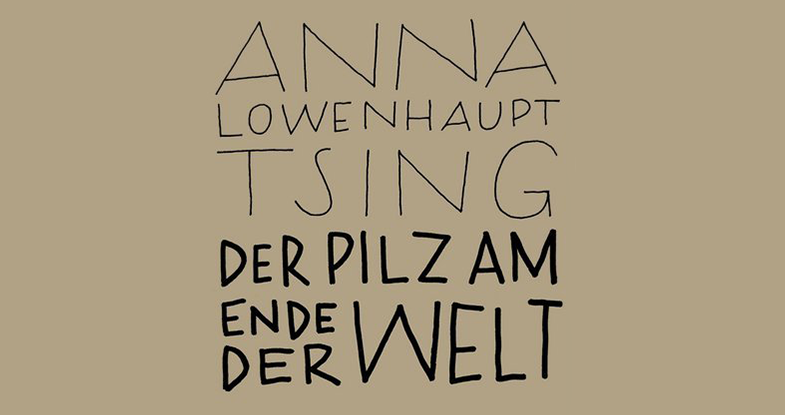In this book, U.S. anthropologist Anna Lowenhaupt Tsing tells the story of the edible mushroom matsutake – and its relationship to its environment, to non-human and human actors. From its interconnections – underground as well as above ground, culinary and economic, to its role in ethnic and identity politics, its smell and the poems of the last centuries praising it.
One reading of the book could be that it is based on the question of the survival of human beings in a world that is itself becoming a great “ruin of capitalism,” exploited and destroyed by a globalized economic system that is irretrievably consuming human and non-human resources in a highly complex manner. Tsings’ ethnographic-ecological plea for collaborations and alliances, for relationships and networks argues and narrates the life of the Matsutake and that of the people – far from hollowed-out formulas of concern or foreshortening, but with political imagination, attitude and radicalism.
The matsutake mushroom is one of the most expensive foods in the world and grows preferentially in post-industrial landscapes, in “the ruins of capitalism.” It is not cultivable, so it cannot be grown by humans. Millions upon millions of its roots permeate the soil and decompose it, creating the basis for the growth of other, non-human creatures. It grows rapidly and, because of its high market value, is usually quickly gone again – often picked by precarious, migrant collectors, who are often denied access to other wage labor.
The polyphony of this thematic structure also flows into its form – Anna Lowenhaupt Tsing writes vividly and literarily, without losing sight of theoretical approaches, transdisciplinary, without releasing her essay into a formal arbitrariness. It follows the tracks of the
Matsutake
– across genre, country and era boundaries.
Anna Lowenhaupt Tsing 2018: The mushroom at the end of the world. About life in the ruins of capitalism. Berlin: Matthes & Seitz
If you don’t have a bookstore worth supporting near you, you can also buy the book from the alternative non-profit online bookstore links-lesen.de, which supports political projects with the profits. The link to the book can be found here.

